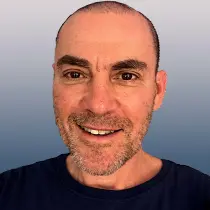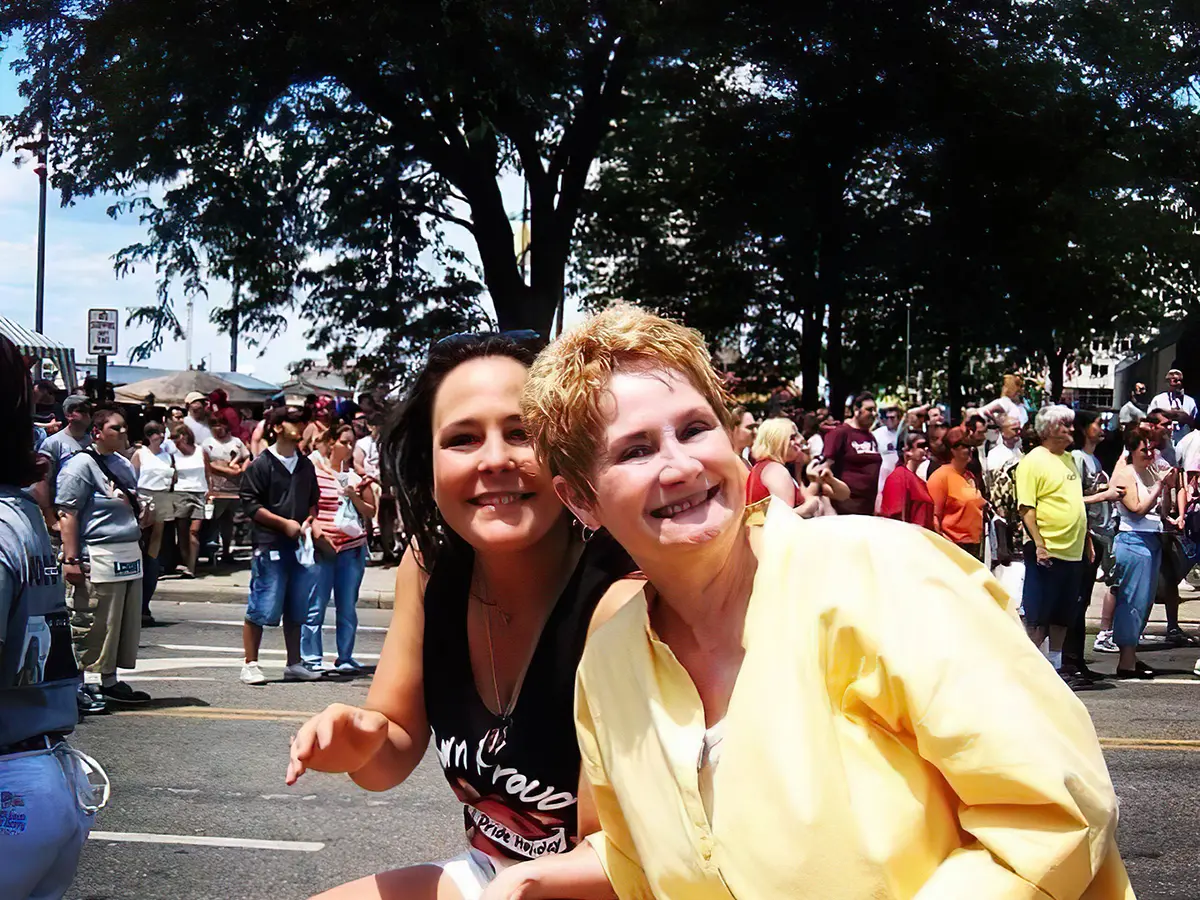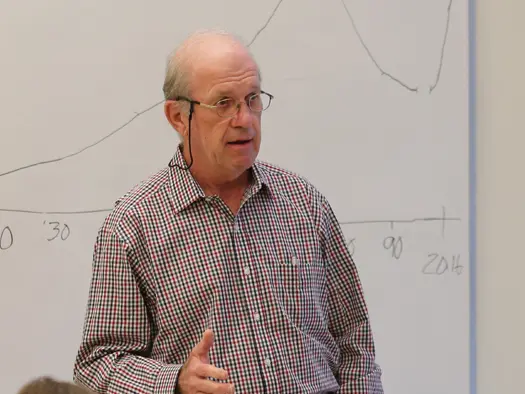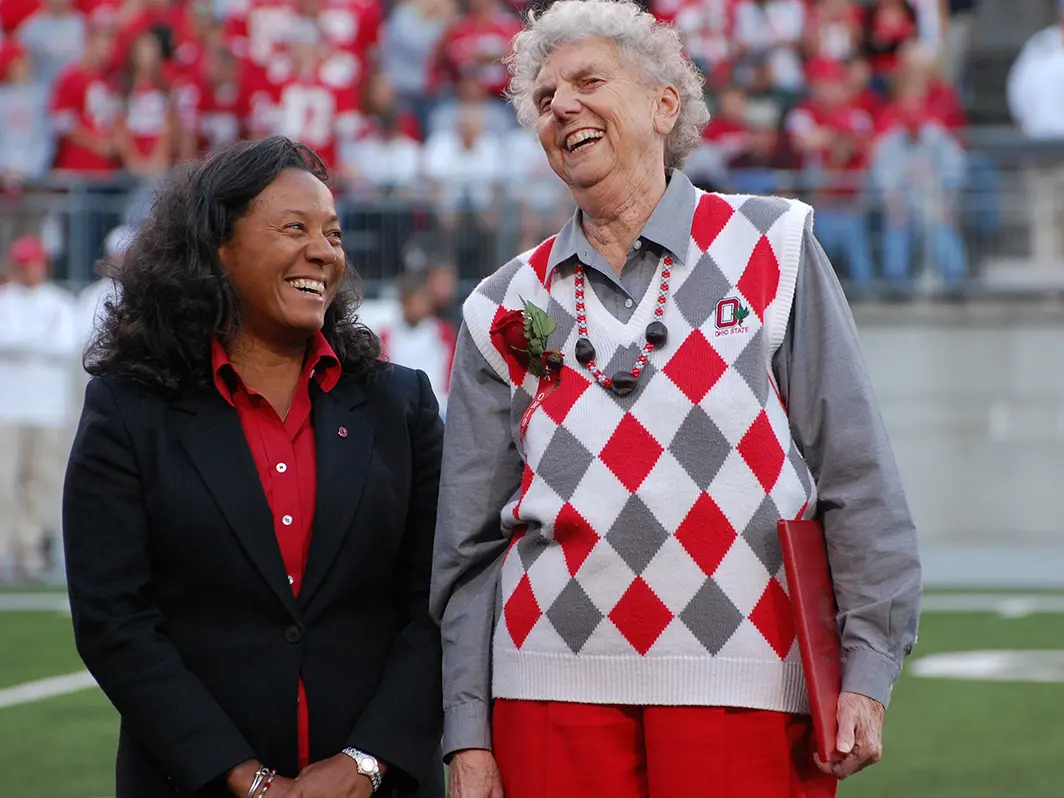Professor Bear F. Braumoeller: A true scholar and friend
While his research focused on escalation and war, this professor was beloved for spreading encouragement and kindness.
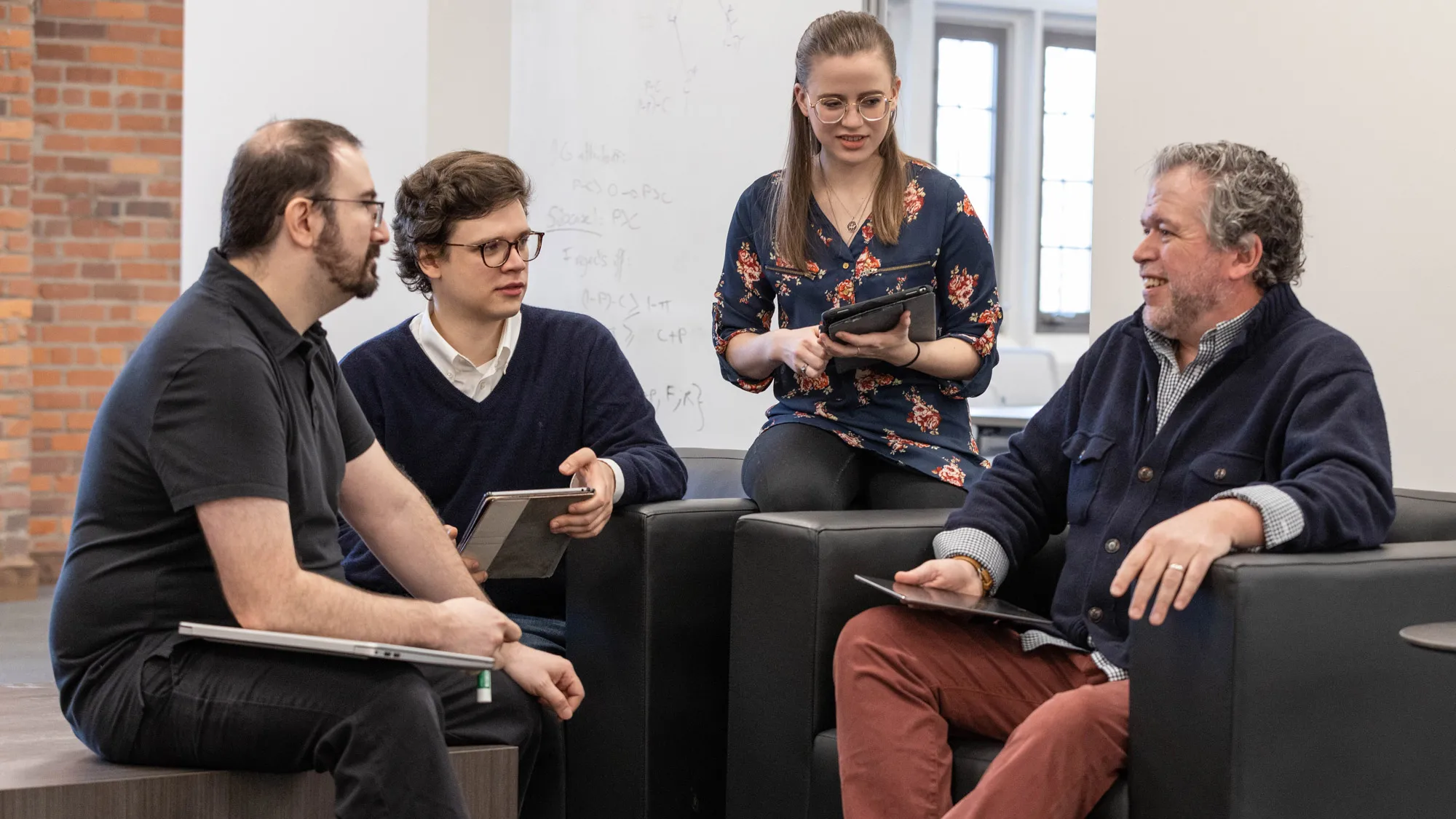
From left, political science graduate student Michael Lopate, Alan van Beek ’23 PhD and Caroline Barto ’22 meet with Professor Bear F. Braumoeller. (Photo by Jodi Miller)
Bear F. Braumoeller knew how to make people feel welcome.
“He was one of the first faculty members to greet me when I came here,” says Tanya Berger-Wolf, director of Ohio State’s Translational Data Analytics Institute. “He made me feel comfortable instantly, and we became immediate friends.”
Braumoeller, 55, died May 3 of complications of a strep infection. He and his wife, Kristen, and daughter, Molly, had been living for the past year in Oslo, Norway, where Braumoeller was involved in a multidisciplinary project to increase understanding about escalation and war.
Having joined Ohio State in 2007, he was the Baronov and Timashev Endowed Chair in Data Analytics, founder and director of the MESO (Modeling Emergent Social Order) Research Lab and a professor in the Department of Political Science.
Berger-Wolf describes Braumoeller as outgoing and kind, someone who had “an enormous appetite for life, for new ideas and for seeing where these new ideas could take people intellectually.”
“We could talk for hours about so many topics and go in so many directions without ever running out of things to talk about,” she says. “I miss him; I need my brain scratched and my soul nourished.”
Braumoeller’s primary research focus was international order and conflict. He developed statistical models to quantify the social, economic and political factors that have led to past conflicts and analyzed current trends that could contribute to future wars.
Braumoeller published two books, Only the Dead: The Persistence of War in the Modern Age (2019) and The Great Powers and the International System: Systemic Theory in Empirical Perspective (2012). He refuted the idea that war is steadily declining and was motivated to understand how international orders operate and promote peace.
Andrew Goodhart ’18 MS, a doctoral candidate in political science who spent almost eight years with the U.S. Department of Defense before arriving at Ohio State, valued his advisor’s guidance.
“When I applied, we had never met, but he read my application and called me,” says Goodhart, who has found this rare in academia. “We had a terrific conversation. He was incredibly engaging, and it was clear I could develop my best ideas here.
“I’ll miss just being able to bounce ideas off him,” Goodhart says. “He was so thoughtful and insightful. Sometimes a mentor’s job is to be a few steps ahead of his mentee and steer them in the right direction. He could definitely do that and see connections I hadn’t yet seen.”
Many of their conversations took place over meals, Goodhart says, calling Braumoeller a dedicated foodie who loved introducing friends and colleagues to new culinary adventures. “He was so much fun to eat with,” he says. “He knew everything about food and all the great places to eat.”
When Kaveri Sarkar arrived from India to start work on her PhD in political science, she felt a bit out of her element. “I struggled my first year [2021], and one of the big turning points was when a friend organized a lunch for us to talk [with Braumoeller],” she says. The lunch lasted for hours and covered a wide range of academic and other topics. “He listened to my problems and gave advice in a way that wasn’t patronizing. He really listened and shared stories from his grad school years.”
Braumoeller insisted on paying for lunch, telling the students they could pay the favor forward one day. Sarkar intends to do so when she mentors students. “Somehow he always made time for others and was there to listen,” she says. “I will always remember this and try to do it for others. Kindness helps in any situation.”
Goodhart also plans to propagate the insights he gained from Braumoeller. “He wanted to get to the right answer more than he wanted or needed to be right,” he says. “That’s really special, and I hope I can always remember that standard.”
Honoring his mentorship
Consider assisting graduate students in the Department of Political Science through the Bear F. Braumoeller Memorial Fund.
